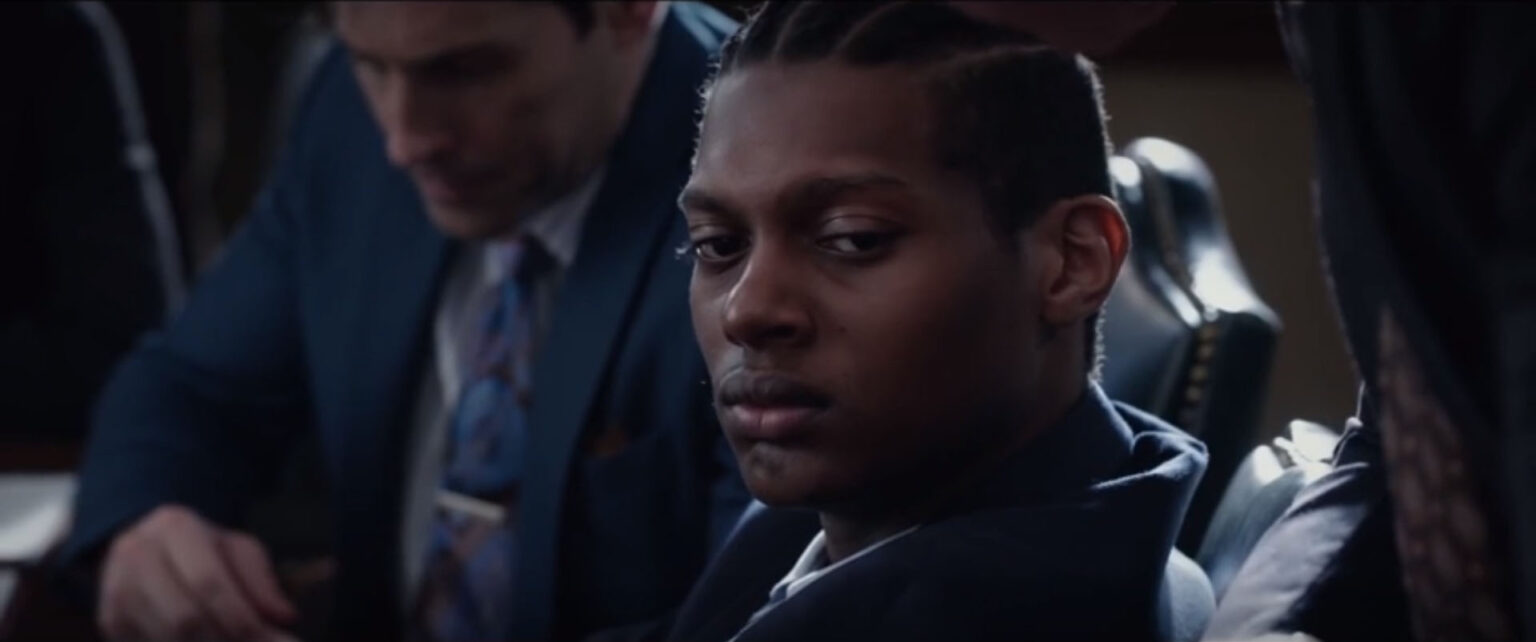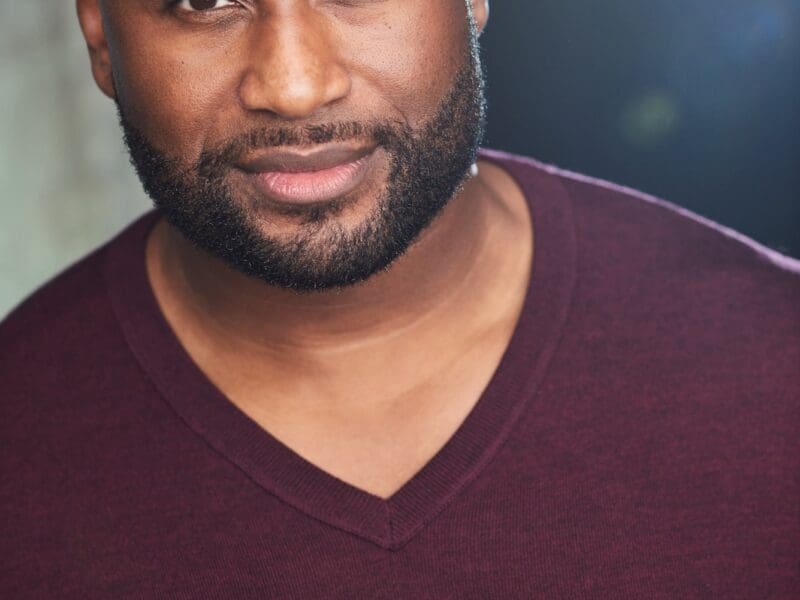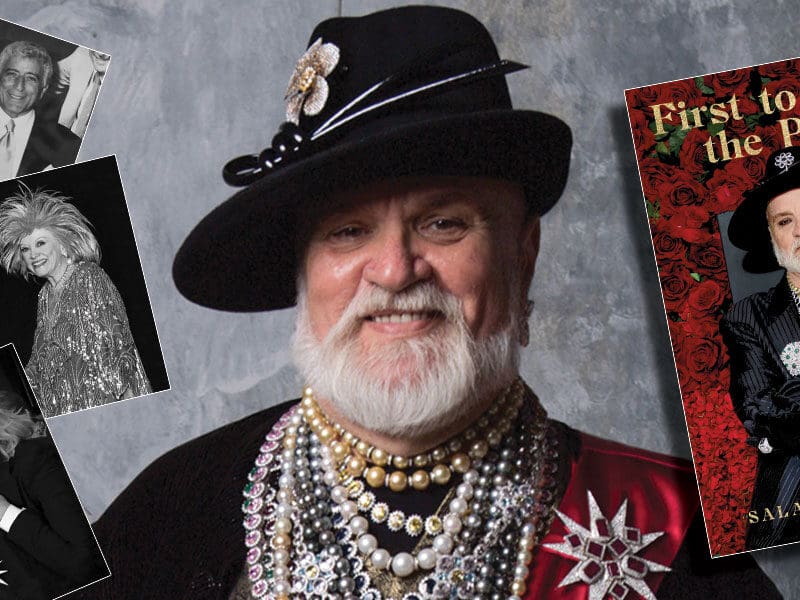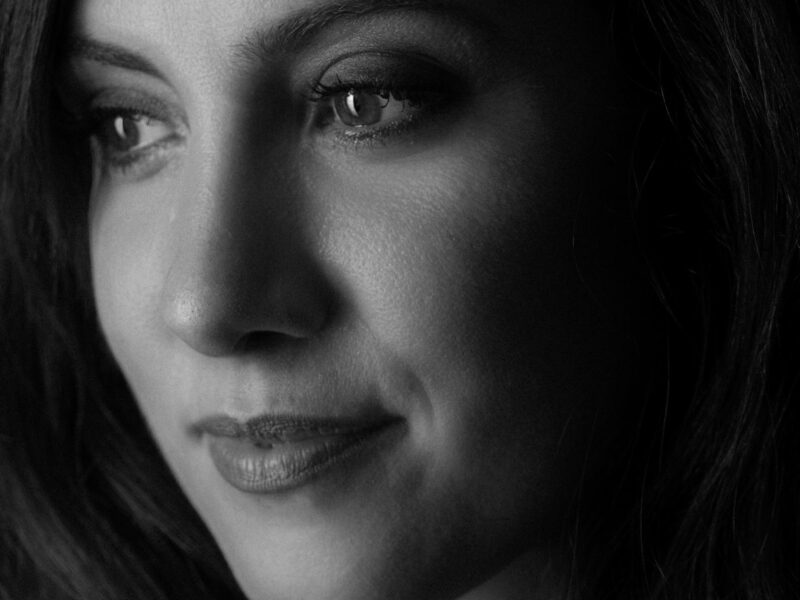
Interview: Jay Paul Deratany and his legal thriller movie ‘Foster Boy’
Jay Paul Deratany seems to do it all and then some. He’s a writer, director, and producer who also works as an attorney. Deratany now has his own law practice, but also creates thoughtful movies and stage plays to share important stories in the hopes of making a difference.
Deratany’s latest project is a film called Foster Boy, a legal thriller movie which has won 18 awards so far and tells the story of a young black man who was abused in the foster system & the lawyer who is assigned to represent him.
We had the opportunity to ask Jay Paul Deratany some questions about both his careers, his new film, and what we can expect from him in the future. Read what he had to say below.

You’re a producer, writer, actor, and lawyer, how did you get into filmmaking?
I’ve always loved acting and writing, and did some side work, while running my law firm. Then, after one of my plays did pretty well, (Haram Iran, won a GLAAD nomination) and after practicing law for 20 years went back for [an] MFA in screenwriting.
My professor John Schimmel liked my script Foster Boy, and showed it to producer Peter Samuelson, and when we met I said that I could raise some money as well for the film. Once you go out and raise money for an indie, you are helping to produce. But, the hard physical and emotional work is pre-production and on set, and it is there, working with Andrew Sugerman that I learned a lot on how to help run the day to day operations of a film. Tough, but fascinating work.
Could you tell us a little bit about your work as an attorney?
I started work for Legal Aid, but was being paid $8 an hour so I could not make ends meet. I eventually started my own firm, and took on large corporations in environmental litigation (to shut down a municipality well that was poisoning the residents with chemicals), product liability and medical litigation always representing the injured parties.
When I first took on a foster care case 20 years ago though – I knew it was my passion. I have been fighting to reform the very broken foster care system and representing kids who have been abused, in the foster care system since.
What made you decide to become a lawyer?
I failed chemistry and knew I could not be a doctor. (Laughter.) Partly true, but I had always had a sense of outrage at injustice, perhaps from being raised in Detroit and seeing some pretty big injustices from a young age, and decided in college that I was going to be a legal aid lawyer and represent the homeless and tenants fight for fair housing. When I graduated there was a hiring freeze and I was being paid a clerks wages as a lawyer, so I set up my own shop. I’ve never looked back.
Foster Boy is your latest film project, what is it about?
Foster Boy is a legal thriller drama, based upon an amalgamation of three of my cases. It is about two people, a hard headed lawyer who has spent his life representing the “man” i.e. big corporations, but is forced to take a case pro bono, on behalf of a down and out foster kid who is fighting against a large for-profit foster care system that put him in a home where he suffered torture and abuse. The two have to come together and resolve their own bias[es] and prejudices before they can fight the crooked corporation.

What made you choose to tell this story?
I have been, and continue to represent many kids in foster care that are or have been sexually, physically, or emotionally abused in the foster care system. I was shocked to see how many, and I wanted more than a jury of twelve to see the injustice, so that something can be done.
How do you balance your work as an attorney and your work in filmmaking?
I don’t sleep.
Seriously though, the only time I become depressed is when I am bored. I like to create and do things. I love telling stories most of all, and when you think about it when you are practicing law, you are telling your client’s story to a jury, and it is not all that different from telling a story in a film, but it is just to a larger audience.
I balance the attorney/writing/filmmaking world by having a great group of individuals around me. I could not have produced this film without the other producers, Ann Marie Mackay, Peter Samuelson, Andrew Sugerman.
In the law, I have a strong group of lawyers, including my law partner Mike Kosner, that work for my firm Deratany & Kosner, and we work together to get a case ready for trial. I think my true skill is building teams that work cohesively and with great purpose to achieve justice, and get the job done well.

Is there anything you’d like people to know about before watching Foster Boy or anything you’d like them to think about while watching?
Please think about what it must mean to be a child who has been rejected by your parents or abused, then moved from home to home. Think about what it must mean for a child not to have love, and support, and worse to be abused. Most of us are so privileged that it is hard to imagine how it is that about 500,000 children are in the American foster care system, and so many have been abused and neglected.
Shaquille O’Neal is credited as a producer for Foster Boy, how did he become involved with the film?
Peter Samuelson introduced the film to another executive producer Marybeth O’Connor who was good friends with Shaq. Shaq saw the film, summonsed me to Atlanta, where we met. When I shook his hand I knew what it must be like when a baby tries to shake a finger of an adult.
Anyway, we had a great talk and he said “why are you thinking small Jay”? I was confused, and he said “We need to make a series called Foster Boy and really expose this worldwide” and so he is on board with the series Foster Boy which we are in the process of producing.
I have to say Shaquille is truly a kind, and decent man. Intelligent, thought provoking, and wants to make a better world.

The film is partnered with nationally recognized charities such as the Children’s Advocacy Institute – how can people get involved and make a difference?
Donate, foster, write letters to congress, become a CASA volunteer. There are so many ways to improve the foster care system. We have listed some of those ways to get involved on Fosterboy.com. Shaq, myself, and the producing team truly are working to expose the abuse, and improve the system and we can’t do it without people getting involved.
What’s your filmmaking mission? Name the most important thing you want viewers to experience when watching your movies.
As I continue on this life’s adventure, I want to make a difference. I am writing and producing true stories that have a social impact in some way. There are so many stories that have yet to be told, where ordinary people become heroes, and I would like to tell their stories.
My play Haram Iran, is a true story that deals with the killing of gay teens in Iran. The Civility of Albert Cashier, (a musical) tells the true story of a Civil War hero who was born female and enlisted in the Civil War as a man and fought in all the major battles saving “his” troop. Was this individual transgender, or a female who wanted to live in a man’s world? I don’t want to make the judgement, I want the audience to, but I want to honor them and tell their stories.
Could you describe your creative process when it comes to filmmaking and writing?
With regard to writing, I sit in front of a computer, get up 100 times, open the fridge, close it, walk around, talk to myself, play out the parts in my head, take on the role in my head, go back to the fridge, close it, go back to the computer and start typing. Repeat the next day.
Seriously I do that, but also I spend a lot of time researching the individual and the stories for accuracy. In the case of Albert Cashier, I drove to Alberts small home town in Southern Illinois, I went to their gravesite, I researched 1800s corsets (they were awful torture devices for women).
How do you decide what stories to tell?
I sort of gave away that answer above, but I like to tell stories that have a social impact and that have perhaps been untold. With Albert Cashier I was fascinated by this individual that lived as a man, and continued to live as after the war. Albert must have been so isolated with his secret in a very small town in Illinois, yet he had accomplished so much in the Civil War. I want to tell these untold stories.

Do you have any upcoming film projects planned? Can you tell us about them?
I am working on the series Foster Boy (which I believe will air on TNT) with Trey Ellis and Jamal Joseph, two phenomenal writers. I am also working on filming the musical Albert Cashier in either London or LA (I will know within a week or two).
What’s your favorite film of all time?
There are so many I can’t just name one. My top are: Godfather, The Help, Slum Dog Millionaire, Birdcage, Ordinary People, and Boy in the Striped Pajamas.
And finally, a fun question, cats or dogs?
OMG. Not even close. Dogs. I can’t walk down the street and not stop and give some love to one of my furry friends. I like cats too – but really they’re just fine without us.







